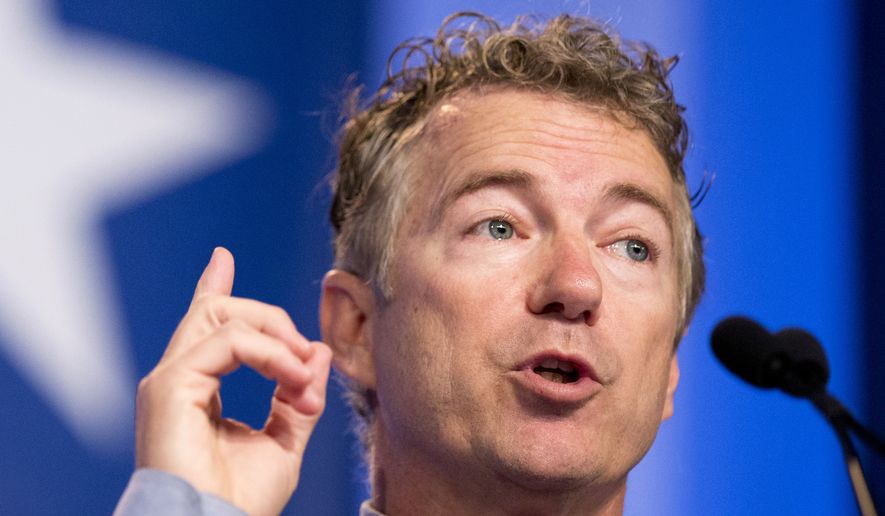Sen. Rand Paul says that the number one threat to U.S. national security is the country’s debt, but that a balance can be struck between cutting spending and adequately funding the military.
“There are people on our side, and I think they’re absolutely wrong — there are conservatives who are, ’I’ll spend anything and I don’t care if it bankrupts the world, I’ll spend trillions of dollars, we’ve got to have it’ — that’s wrong,” the Kentucky Republican said Tuesday at the annual Wall Street Journal CEO Council gathering. “Because you will be a weaker country and you will be more vulnerable and I truly believe that the number one threat to our national security is our debt.”
Mr. Paul has carved out a less hawkish foreign policy perspective than many other potential GOP presidential contenders in 2016, but is also trying to shirk the isolationist label of some critics are trying to pin on him.
“What does separate me from some conservatives is I am not all in, everything, no matter what — I’m saying we spend what we can from what comes in,” he said. “We bring in 3 trillion dollars every year, we spend 3 trillion dollars. That’s very simple, [but] a very radical notion up here.”
He said everybody in the business world understands that they spend what comes in or if they borrow money, they borrow it on a “rational basis.”
“We do nothing rational in Washington, it is bankrupting the country, and I think really, ultimately threatens us and makes us weaker,” he said.
Asked about defense spending levels, Mr. Paul said there needs to be an overall strategy in mind.
“I think it’s a mistake to look at defense spending and say, ’we’re going to spend 4 percent of GDP or we’re weak,’” he said. “I think if you want to protect the country, you have a strategic vision for what we need to defend the country.”
He said, for example, if tomahawk missiles are important, there should be discussions with military folks on how many they need, not a similarly predetermined amount of money.
Mr. Paul also said his five-year budget plan eliminated across-the-board sequester cuts to the military, allowed military spending to grow above the sequester, and did so while balancing the budget in five years.
“That is my preferred vision for government,” he said. “If we want to be strong again, we should both balance the budget and spend an adequate amount of money on [military] defense.”
• David Sherfinski can be reached at dsherfinski@washingtontimes.com.




Please read our comment policy before commenting.